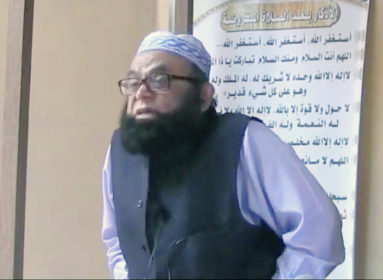 Every war veteran who passes on leaves an indelible mark on this world. When we look at those who served during World War II, and are not rapidly leaving us, we call them “the greatest generation.” But veterans from other wars – Korea, Viet Nam, Iraq, Afghanistan – and the many who have stood watch during the undeclared conflicts that typify our age, leave us all the time, mostly unnoticed.
Every war veteran who passes on leaves an indelible mark on this world. When we look at those who served during World War II, and are not rapidly leaving us, we call them “the greatest generation.” But veterans from other wars – Korea, Viet Nam, Iraq, Afghanistan – and the many who have stood watch during the undeclared conflicts that typify our age, leave us all the time, mostly unnoticed.
There is no time or generation that should stand apart from another, since it is the service and sacrifice of these individuals that sets them apart and makes them worthy of note. We know, too, that while many died during the conflict they participated in, there are many who passed on after they left the service with wounds that dominated their post-service lives. In some cases these wounds were visible, but more often than not they were hidden from view.
Captain Gerry Gitell was a Green Beret who fought in Viet Nam and, along with his service, left his mark on the era in which he served in a unique way. Aside from his combat experience, Gitell brought to the generation who fought that war a pride and meaning that they were denied them from a disapproving public who had issues with U.S. involvement in Viet Nam.
Gitell’s special effort was his role in bringing to the public “The Ballad of the Green Beret,” sung by Barry Sadler and composed by Sadler along with author Robin Moore. In the words of a veteran who attended Gitell’s funeral, the song was “a national anthem for the Green Berets” of that time. Gitell saw the value in promoting this song and oversaw its recording, distribution and participated in its promotion. He witnessed it not only gain popularity, but rise to number one in the song charts, provide background for a John Wayne movie and become featured on the Ed Sullivan show, the leading TV variety show of the time. His efforts gave his generation who served in the armed services during that time the prideful recognition and positive reinforcement that was meaningful to them and missing from the general population around them.
After he played his role in recording and promoting this song, Gitell continued his service as a combat officer in the field. His combat experience in Viet Nam was as a member of the 5th Special Forces Group in 1965 and ’66 and he acted as an adviser to South Viet Nam troops actively engaged in combat.
He was born in Boston, Mass. to first generation Americans, the late Hyman and Rose Gitell. A graduate of Newton South High School, he went on to Boston University and enrolled in the ROTC program.
Gitell is survived by a daughter, Deborah, of Hollywood, Calif.; a son Seth and daughter-in-law Dana, and grandsons, Max and Eli all of Roslindale, Mass.; his ex-wife Leanne of Hull, Mass. with whom he maintained a warm relationship; a brother Mark of Scottsdale, Ariz.; and a sister Sandra Katz of Henderson, Nev.; and numerous nieces, nephews.
Gerry Gitell’s son, Seth has written a number of articles for Jewish Ledger Publications and was the chief reporter in Washington, D.C. for the first English edition of The Forward newspaper. He was also a correspondent for the print edition of the New York Sun and is currently a member of the staff of Mayor Thomas Mennino in Boston. He also continues to inform the Ledger’s editorial content.
Gerry Gitell was laid to rest in Las Vegas, Nev. where he lived for the last 10 years. His funeral was attended by the Special Forces Association Chapter 51. “The Ballad of the Green Berets” was sung at his funeral. He was 69. He left his mark.
-nrg







 Southern New England Jewish Ledger
Southern New England Jewish Ledger














